

The Chinese space industry is to enter a new era as the year 2015 will see the end of its 12th Five-Year Plan. A total of 19 rockets and 43 satellites have been launched successfully by China Aerospace Science and Technology Co. in 2015.
The world has seen 86 space launches in 2015, 29 in Russia and 17 in the U.S., excepting that the latter saw two failed attempts due to accidents. At the end of December, let’s take a review on the key achievements Chinese space industry has made in 2015.
New-Generation Carrier Rockets Took Maiden Flights Successfully
On September 20, a new model of carrier rocket, Long March-6 blasted off on its maiden flight in the Taiyuan Satellite Launch Center in north China's Shanxi Province. The Long March-6 carried 20 micro-satellites and set a new record for the number of satellites that carried by one rocket.
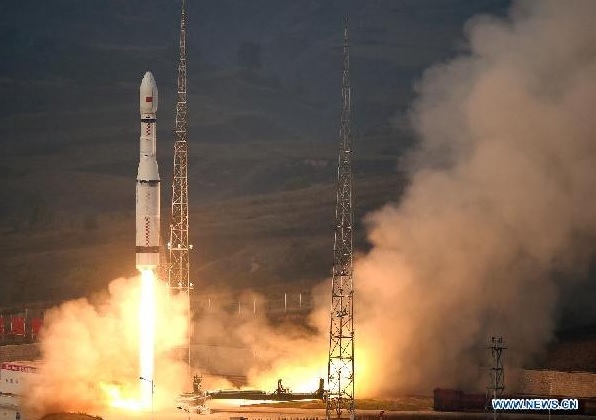
A new model of China's carrier rocket Long March-6 carrying 20 micro-satellites blasts off from the launch pad at 7:01 a.m. from the Taiyuan Satellite Launch Center in north China's Shanxi Province, Sept. 20, 2015.
On September 25, the rocket Long March-11 carried four micro-satellites into space from the Jiuquan Satellite Launch Center in northwest China’s Gansu. It is the first solid propellant rocket of the Long March rocket family developed by the China Academy of Launch Vehicle Technology with the China Aerospace Science and Industry Corporation.
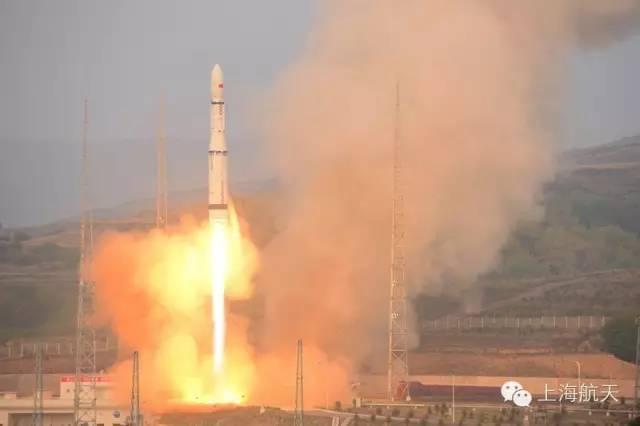
China successfully launched a new model of carrier rocket, the Long March-11, at 9:41 a.m. on September 25, 2015, from the Jiuquan Satellite Launch Center in the northwestern province of Gansu.
Besides, China has successfully performed the ground tests on its largest ever rocket the Long March-5 and Long March-7, which were scheduled to take their maiden flights in the Hainan Satellite Launch Center in 2016.
Long March-3A Rocket Completed All Nine Space Missions
As China’s “gold rocket”, the Long March-3A has successfully sent 10 satellites to space in nine missions out of China’s total 19 launches in 2015.
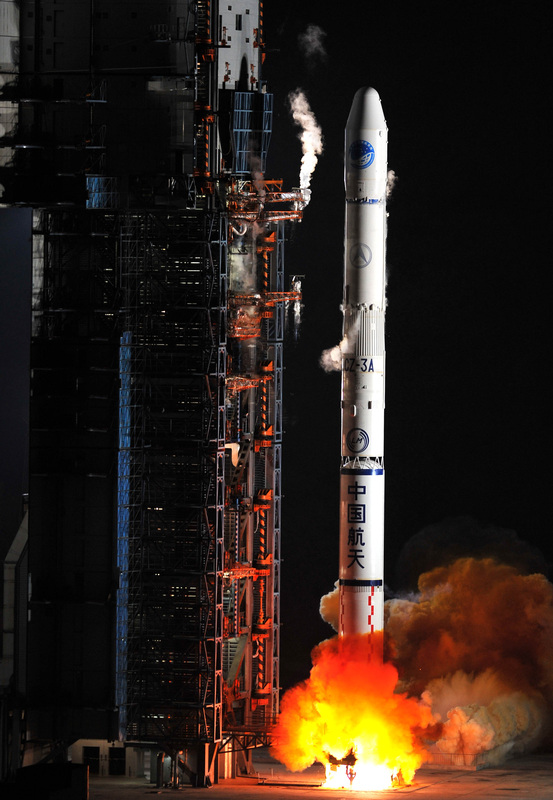
The Long March 3A rocket
Four Beidou Navigation Satellites Launched Successfully
China successfully launched four new-generation satellites for the BeiDou Navigation Satellite System (BDS), marking that the Beidou satellite navigation system had taken a solid step towards the goal of global coverage. China plans to expand the Beidou services to most of the countries covered in its "Belt and Road" initiative by 2018 and offer global coverage with 35 Beidou navigation satellites by 2020.
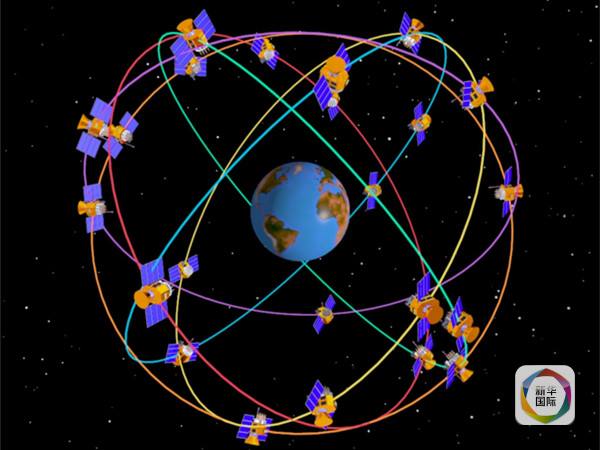
Rendering picture of China's BeiDou Navigation Satellite System (BDS),
Five New Communication Satellites Put into Orbits
In 2015, five new communications satellites including the APSTAR-9, ChinaSat 1C, Zhongxing-2C, Zhongxing-1C and LaoSat-1 were put into orbits successfully. They will provide high-quality voice, data and radio as well as TV transmission services for home and overseas users.
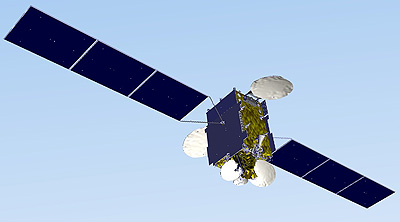
Rendering picture of APSTAR-9
 Are these the world’s scariest landing strips?
Are these the world’s scariest landing strips? In pics: Left behind children in China
In pics: Left behind children in China Eight modern day engineering marvels of China
Eight modern day engineering marvels of China Chinese beauty with sexiest bottom
Chinese beauty with sexiest bottom Charming female bodybuilders of Chengdu University
Charming female bodybuilders of Chengdu University Polish sports stars strip off for risqué calendar
Polish sports stars strip off for risqué calendar Spectacular aerial photos of the Three Gorges
Spectacular aerial photos of the Three Gorges Contestants of Mrs. Globe pose for photo in Shenzhen
Contestants of Mrs. Globe pose for photo in Shenzhen
 Bikini models attend hot pot banquet in Hefei
Bikini models attend hot pot banquet in Hefei Top 20 hottest women in the world in 2014
Top 20 hottest women in the world in 2014 Top 10 hardest languages to learn
Top 10 hardest languages to learn 10 Chinese female stars with most beautiful faces
10 Chinese female stars with most beautiful faces China’s Top 10 Unique Bridges, Highways and Roads
China’s Top 10 Unique Bridges, Highways and Roads Face of China 2015
Face of China 2015 A hard year 2015’s stories
A hard year 2015’s stories Smartphone makers jockey for dominance of Chinese market
Smartphone makers jockey for dominance of Chinese market Film star's posts stirs debates on Chinese, foreign medical services
Film star's posts stirs debates on Chinese, foreign medical servicesDay|Week